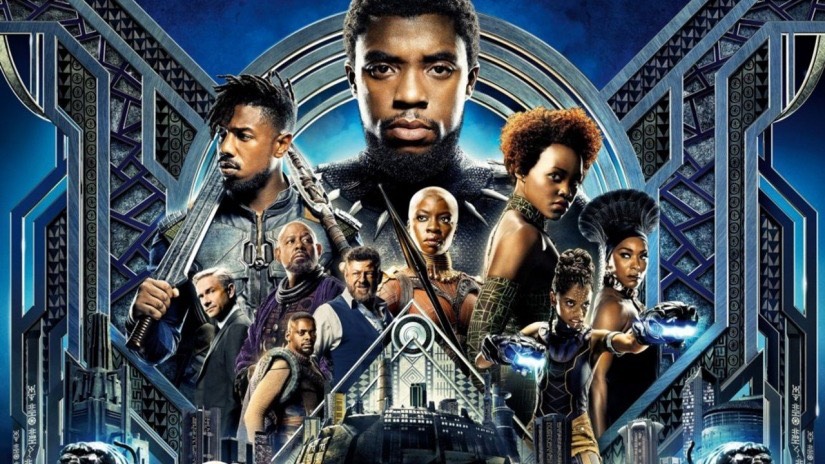INSPIRING: Marvel’s Black Panther soars in the box office and sparks celebration of African American culture.
By Micah Pierce, Staff Writer.
Marvel’s newest superhero flick, Black Panther, has been setting new records ever since its release in the US on February 16th, 2018. Even before it came out, Black Panther set a new record for all of the Marvel Cinematic Universe (MCU) films to date: within the first 24 hours of presale tickets being made available on Fandango for the film, Black Panther broke the MCU ticket sale records. This title was previously held by the third installment in the Captain America franchise, Captain America: Civil War, released in 2016. With an opening weekend gross of 202 million dollars, Black Panther is now the fifth-highest opening weekend of all time, becoming the sixth superhero movie to enter the top ten highest opening weekends. The film has been number one at the box office for five straight weeks, and is currently number 14 of the highest domestic box office grosses of all time. Black Panther has now reached a worldwide total of over one billion dollars, and could possibly overtake The Avengers as Marvel’s biggest hit to date.
Not only has Black Panther been setting numerous records with the money it has made, but it has also taken a major step forward for African American representation in superhero films with a cast comprised primarily of black actors and actresses. Paired with Warner Bros. Pictures’ 2017 film, Wonder Woman, the ever popular superhero genre has been drastically increasing its representation of minorities to appeal to a wider range of audiences. Even in Black Panther, the women play a huge role in the story. African American audiences have had an incredibly positive and enthusiastic reception of the movie with many communities coming together to celebrate their heritage and the film. Many black communities even coordinate dressing up in traditional African apparel to see the film. Black Panther has an array of stunning and colorful costuming, all of which stays true to the African culture, where Wakanda, the main fictional setting of the film, exists.
Black Panther’s appeal isn’t solely in the fact that it is making new cultural advancements, but in its compelling plot and the deep connections and interactions between each of the characters. Black Panther continues on after the events of Captain America: Civil War, in which Chadwick Boseman first debuted as T’Challa, the Black Panther. This time the audience is taken to T’Challa’s home country of Wakanda, an African country built upon a meteor made of vibranium, one of the strongest alien metals in the MCU. The vibranium has provided the people of Wakanda with the means to create incredibly advanced technology, resulting in Wakanda being many years ahead of the rest of the world. Despite Wakanda’s immeasurable wealth and resources, the country’s inhabitants have closed themselves off from the outside world for fear of people exploiting the extremely valuable and dangerous vibranium.
Wakanda’s secrecy about their vibranium causes T’Challa to clash with a long lost relative, Erik Killmonger, played by Michael B. Jordan.This new villain wants to take over Wakanda and use its vibranium to aid fellow African Americans all over the world. All of this conflict comes in the wake of the death of T’Challa’s father, T’Chaka, in Captain America: Civil War. While dealing with his father’s death, T’Challa is forced to defend Wakanda from Killmonger and struggle with his new role as the king of Wakanda. The movie is jam packed with explosive and exciting fight scenes and new high-tech gadgets that T’Challa will use to defend his home. Erik Killmonger has quickly become a fan favorite villain in the MCU, thanks to his seemingly noble motivations and the incredible performance put on by Michael B. Jordan. Black Panther has quickly risen in popularity in the weeks since it’s been released, and only continues to climb in popularity.

